CKD Diet Plan
Embarking on a chronic kidney disease diet food list? You're making a wise choice.
This comprehensive guide will provide the knowledge you need, offering detailed, evidence-based advice to help you navigate your new dietary journey successfully.
As a Registered Dietitian with over 25 years of experience, I specialize in helping individuals with Chronic Kidney Disease (CKD) create safe, balanced meal plans that support kidney health. My passion for renal nutrition began when my mother was diagnosed with CKD, inspiring me to develop a trusted resource for practical, evidence-based dietary guidance. I stay up to date with the latest CKD research and guidelines, ensuring my meal-planning recommendations are both nutritionally sound and easy to follow.
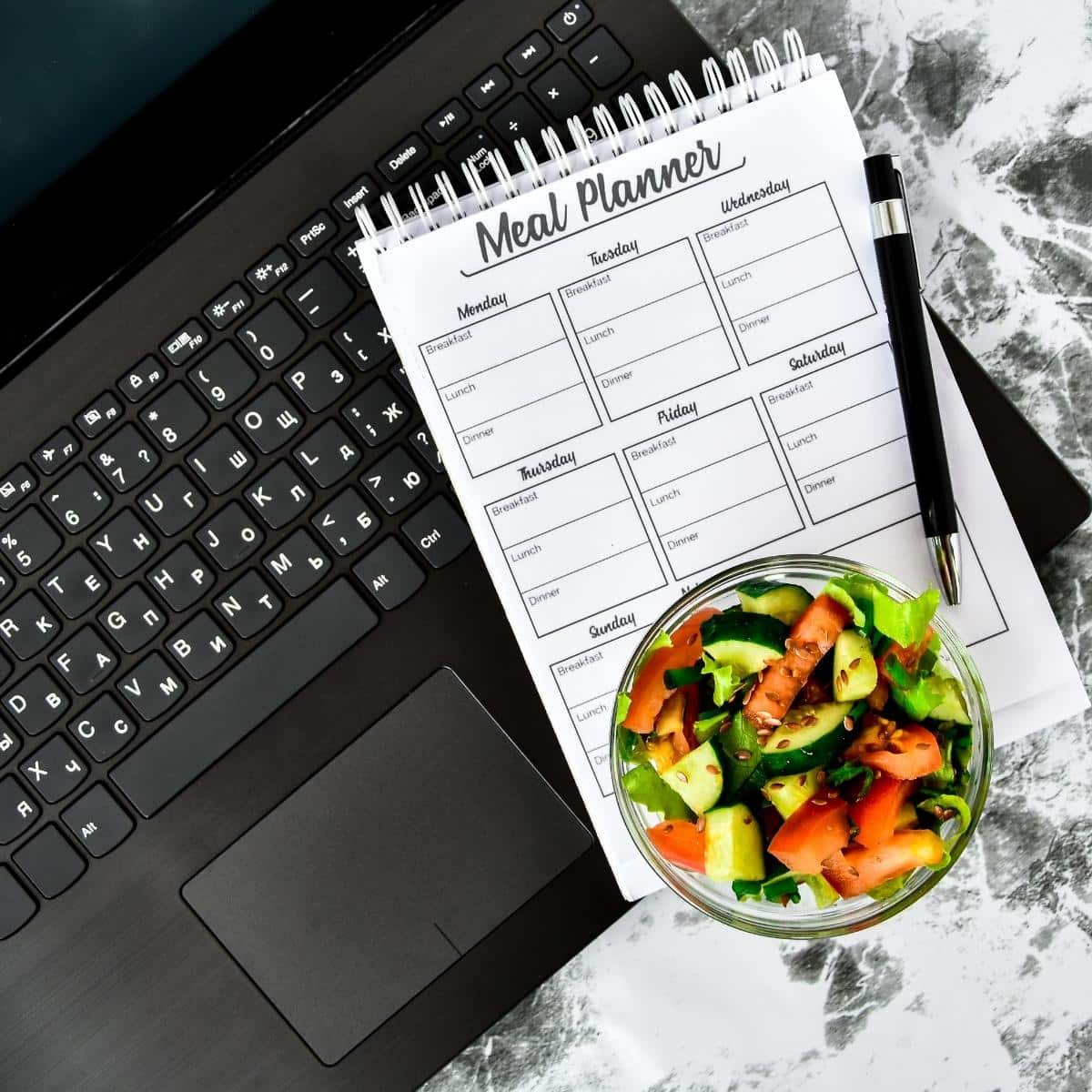
From understanding minerals and protein's role to grocery shopping with CKD, we'll empower you to serve your health better, one meal at a time.
Let's explore this life-enhancing path together.
Jump to:
- Key Takeaways
- Making the Decision to Follow a CKD Diet Plan
- Key Nutritional Considerations
- Creating Your CKD Meal Plan
- Grocery Shopping And Prepping for Your CKD Diet
- Sticking to Your CKD Diet Plan
- Understanding the Role of Protein in Your CKD Diet
- The Importance of Fluid Balance in Your CKD Diet
- Navigating Dining Out on a CKD Diet
- Setting Yourself Up for Success with a CKD Diet Plan
- FAQs About Building Your Own Meal Plan
- Enjoy Kidney-Friendly Diet Plans
Key Takeaways
- Following a kidney diet plan safeguards kidney function and overall well-being.
- Understanding and researching the kidney disease diet, including its requirements and incorporating beneficial foods, is crucial.
- Creating a kidney disease meal plan, shopping for kidney-friendly ingredients, and sticking to the diet require thoughtful planning and organization.
- Consistency and commitment are key for managing kidney disease and slowing down disease progression.
For More Recipes and Ideas --->> Get Your Free Meals and Recipes That Are Perfect for Pre-Dialysis Diets, Pre-Dialysis with Diabetes, or Dialysis Diets.
Making the Decision to Follow a CKD Diet Plan
Following a chronic kidney disease (CKD) diet plan (Diet Changes by Stage of Chronic Kidney Disease) is a significant step towards safeguarding your health.
The first part of diet planning is making the decision to really give it a try. This seems obvious, but you really have to resolve to make your diet plan and actually go through with it. If you aren’t resolved to truly follow through, you could be setting yourself up for failure.
It's crucial to understand the importance of sticking to this decision, as it can profoundly influence your kidney disease progression and overall well-being.
When you first begin a new diet or try anything new such as daily diet planning, as it can be all too easy to fall back into old routines. Give yourself a trial period- such as two weeks to a month- to put real effort into this new diet planning routine.
At first, it may seem tedious or even boring to have everything all planned out for you, but over a short amount of time you will notice how much easier it is to stick to your realistic meal plans for people with CKD, and also how much easier even the busiest of days can be.
Researching Your New CKD Diet
Now that you've made the decision to follow a kidney diet, it's time to get informed about what this entails.
A crucial step in this journey is understanding what foods are necessary for healthy kidneys and incorporating them into your daily meals.
When you're first starting out, you may still be unsure about what foods you should eat, and therefore you likely don’t even know where to start to build a diet plan. A little bit of research can go a long way in this case.
Research recipes that fit into your diet plan, but also aren’t too complicated. Start with simple recipes with few ingredients, and then move to more complicated recipes as you get more comfortable with your prescribed healthy foods.
Don't worry, there is an abundance of simple and suitable food choices out there for people with kidney disease to help make this transition smoother and tastier.
Finding Simple and Kidney-Friendly Recipes
Finding tasty, kidney-friendly recipes isn't as difficult as it might seem. You can still enjoy flavorful meals while maintaining your kidney health.
Kickstart your day with CKD friendly breakfast ideas such as a bowl of oatmeal topped with fresh berries or an avocado toast. CKD meals do not have to be boring; they can include dishes like vegetable stir-fry over brown rice.
For dessert lovers, there are plenty of kidney-friendly desserts available like apple pie and strawberry ice cream that make for delicious yet kidney healthy meals.
Always remember that proper diet planning is key in keeping your kidneys healthy and happy! You can also check out these vegetables low in phosphorus and potassium.
Key Nutritional Considerations
Want to know how to manage chronic kidney disease? When it comes to managing CKD, understanding the right nutrient balance is crucial.
You'll need to be well informed about what foods potentially aggravate CKD, and those that support kidney health.
Navigating these nutritional considerations can significantly influence your condition's progression and overall health, so let's delve into unraveling this dietary puzzle for you.
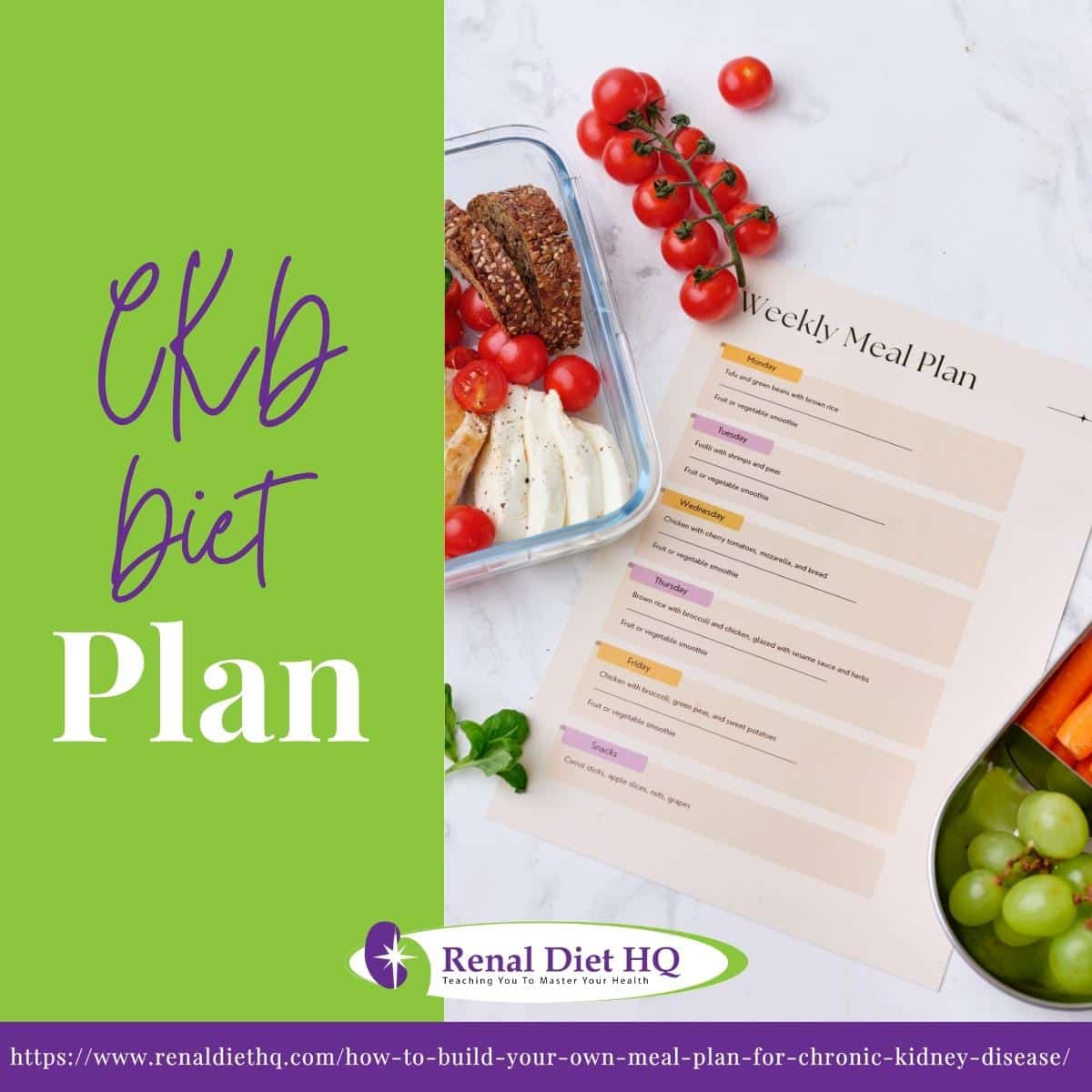
Understanding What Foods You Should Eat
When diagnosed with kidney disease, you'll likely be advised to limit certain foods to maintain adequate electrolyte balance.
Sodium reduction becomes paramount; consuming excessive sodium with kidney disease can lead to high blood pressure, swellings, and shortness of breath. Avoiding canned foods and restaurant foods can be a great way to significantly reduce your sodium intake.
Your potassium intake needs careful monitoring as well, so limit high-potassium foods like bananas and oranges. Extra potassium in your body can cause you fatigue, dizziness, muscle cramps, and trouble breathing.
Managing your phosphorus levels is crucial; opt for foods low in phosphorus to avoid problems like bone disease. Avoid phosphorus-rich foods like dairy products and dark cola drinks and opt for milk alternatives like almond milk instead.
Carbohydrate count is essential too, especially if you're diabetic, as high blood sugar can actually cause damage to your kidneys. Aim for complex carbs rather than simple sugars for better blood sugar control. Also remember to incorporate dietary fiber into your meal plans - it aids your digestive system and keeps blood sugar levels steady.
Some supplements can help fill nutritional gaps that may be caused by following restrictive diets, but you should always consult your health care provider before starting any new supplements.
Remember, each person's dietary needs may vary based on their condition severity - always discuss specifics with your health care provider and kidney dietitian.
Creating Your CKD Meal Plan
Navigating your way through a CKD diet (ckd diet guidelines) can be challenging, but with thoughtful planning and organization, it's entirely feasible.
It's time to plan out your meals for the week, ensuring you have healthy options for all meals and snacks each day.
By doing so, you're not only making meal times less stressful but also taking control of your CKD management - a powerful step toward maintaining good health.
Deciding on Your Meals for the Week
Planning your meals for the week can seem overwhelming, but you'll find it's easier to stick to a CKD diet plan when you've got everything mapped out.
Begin by ensuring meal variety, including CKD superfoods like broccoli, pomegranates, and blueberries in your menu. These fresh foods are known to support overall health due to their high antioxidant and vitamin content.
Remember portion control is key; overeating can put unnecessary stress on your kidneys. Be mindful of dietary restrictions – avoid foods high in sodium, potassium or phosphorus intake.
Planning ahead will make managing your CKD diet simpler and more effective.
Planning for All Meals and Snacks
Making sure you've thought about all your meals and snacks for the week will help ensure you're getting the right nutrients without overloading your kidneys.
Here are some examples of CKD-friendly meals for each main meal of the day:
Breakfast:
- Vegetable omelet: Prepare an omelet using egg whites and add low-potassium kidney-friendly vegetables like bell peppers, onions, and parsley. Serve with a slice of whole grain toast.
- Overnight chia pudding: Combine chia seeds with almond milk, a sweetener like stevia, and flavorings such as cinnamon or vanilla extract. Let it sit overnight and top with sliced strawberries or other low-potassium fruits in the morning.
Lunch:
- Hawaiian Chicken Salad: Grill a skinless chicken breast and slice it over a bed of mixed greens. Add low-potassium vegetables like cucumber and radishes. Dress with a homemade vinaigrette using olive oil, vinegar, and herbs.
- Vegetable stir-fry with tofu: Sauté broccoli, snap peas, and peppers in a small amount of low-sodium soy sauce and garlic. Add cubed tofu for protein and serve over brown rice or quinoa.
Snacks:
- Apple slices with almond butter: Cut up a small apple and enjoy it with a tablespoon of almond butter. In addition to being very delicious, this snack is also a great source of fiber and heart-healthy fats.
- Cucumber and yogurt dip: Slice cucumber and dip it in a small portion of plain Greek yogurt mixed with herbs and spices like dill and garlic powder.
Dinner:
- Baked salmon with roasted asparagus: Season a salmon fillet with herbs, lemon juice, and a touch of olive oil. Bake it in the oven and serve it with roasted asparagus spears coated in a small amount of olive oil and seasoned with garlic and black pepper.
- Lentil and vegetable curry: Cook lentils with cauliflower, zucchini, and bell peppers or other low-potassium vegetables in a curry sauce made from low-sodium vegetable broth, turmeric, cumin, and ginger. Serve over a small portion of brown rice.
Dessert:
- Baked pear with cinnamon: Slice a pear, place it in a baking dish, and sprinkle with cinnamon. Bake until tender. Enjoy it as a warm and naturally sweet dessert.
- Low-potassium fruit salad: Combine low-potassium fresh fruits like melon, berries, and peaches or other fruits to make a delicious fruit salad that's perfect for kidney disease.
Remember to adjust portion sizes and ingredients based on your specific dietary needs and restrictions. It's always best to consult with a registered dietitian who specializes in renal nutrition to develop a personalized kidney-friendly eating plan that suits your requirements and supports your kidney health.
Grocery Shopping And Prepping for Your CKD Diet
Navigating the grocery store with your CKD meal plan in hand is a necessary strategy for maintaining your health. By diligently using your meal plan to craft a detailed shopping list, you ensure that you only purchase kidney-friendly items and avoid foods that could exacerbate your condition.
Having all the right ingredients readily available at home not only streamlines meal preparation but also significantly reduces the risk of deviating from your prescribed diet. This underscores the importance of your meal plan for effective CKD management. Also, this 7 day renal diet meal plan is easy to check out!
Using Your Meal Plan to Create a Shopping List
Once you've established your CKD-friendly meal plan, it's time to translate that into a comprehensive shopping list.
Start by listing your dietary supplements and meal portions for each day of the week. Make sure to include kidney-friendly food rich in vitamins but low in their levels of sodium, potassium, and phosphorus.
Take advantage of seasonal foods which are fresh, nutritious, and often more affordable. Consider organic options if they're within your budget; they can offer better quality without added synthetic chemicals or pesticides.
Your cooking techniques will also influence your grocery choices. If you prefer grilling (grilling blood pressure) or roasting, for instance, lean meats and vegetables should be on your list.
By effectively utilizing your renal diet meal plan when creating a shopping list, you'll ensure every meal supports kidney health while satisfying taste buds too. Living with CKD can change your life, but use these tips to make positive changes.
The Importance of Having All Your Ingredients Ready
Having all your ingredients on hand before starting to prepare a meal is crucial for seamless cooking. Ingredient accessibility not only simplifies the cooking process but can also ensure you adhere to dietary restrictions vital in a proper nutrition plan.
When everything is ready, recipe adaptation becomes much easier, allowing you to make last-minute ingredient substitutions as needed without compromising the nutritional balance.
Efficient kitchen organization goes hand-in-hand with having all your ingredients ready. It reduces stress, prevents messes, and saves time. Therefore, always be prepared—it leads to better meals and healthier kidneys. Also, use these tips to learn how to reduce stress naturally.
Making Each Meal as Simple as Possible
You'll find that simplicity is key when it comes to cooking meals. Simplifying cooking techniques can make meal preparation less daunting, especially when you're following a CKD diet plan.
Try using one-pot recipes or slow cooker meals; they offer easy portion control and are time-saving meal hacks. Need crock pot ideas? These crockpot food for kidney disease are great!
Ingredient substitutions are also an effective way to simplify your dietary routine. For instance, use almond milk instead of regular milk, which has lower phosphorus and potassium levels suitable for a kidney-friendly diet.
Lastly, consider utilizing meal services that cater to specific dietary needs like yours. They provide pre-portioned ingredients and simple recipes, saving you valuable time and ensuring your meals meet the necessary nutritional requirements.
Remember, making each meal as simple as possible can bring ease into your CKD diet journey.
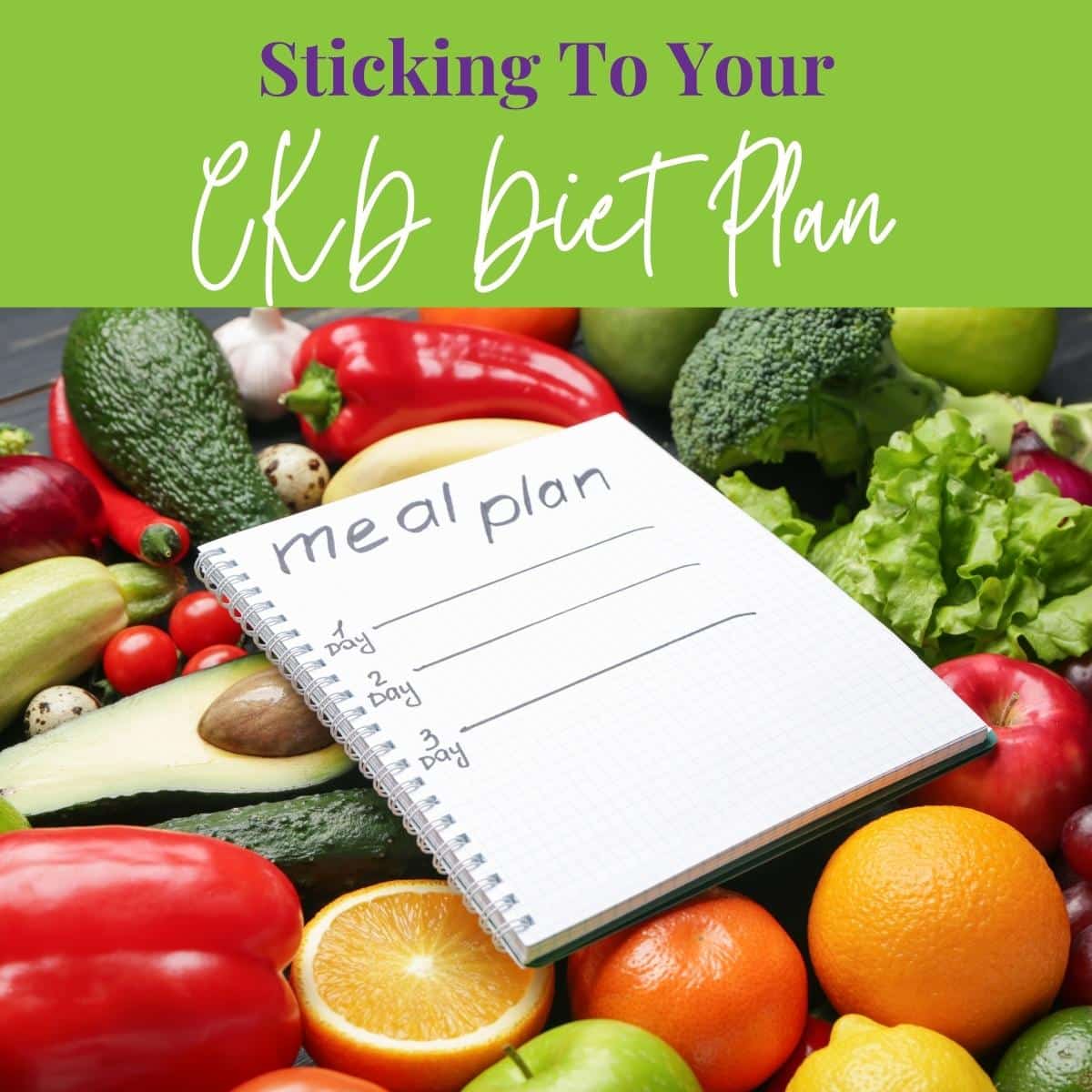
Sticking to Your CKD Diet Plan
Embarking on a healthy eating plan, especially for managing CKD, can pose several challenges. It's critical to give yourself a grace period to adjust and adapt to your CKD diet plan during this transition phase.
This trial period allows you to gauge how well the diet fits into your lifestyle while monitoring its effectiveness in managing your health condition.
The Challenges of Starting a New Diet
Starting a new diet, especially one for CKD, isn't always easy. There are various challenges to overcome, such as understanding nutritional information, resisting cravings, and adjusting to new foods for kidney disease.
You may also face emotional challenges when starting this journey. There might be dietary misconceptions that confuse you about what's healthy for your kidneys and what's not. However, it's important to remember that diet motivation is key in overcoming these hurdles.
Cravings can be hard to resist, but recognizing triggers and developing strategies can help control them. It might take some time to adjust your palate to the new foods prescribed by your dietitian, but persistence pays off eventually.
You'll find it beneficial to set milestones to track progress in your diet plan for kidney disease. These could be as simple as a lower intake of sodium or potassium.
Additionally, don't underestimate the importance of a support system. They can provide encouragement during tough times or when you're feeling low on willpower.
Overall, starting a new diet for CKD requires patience, determination, and a strong support system. With these factors in place, you can successfully navigate the challenges and achieve your dietary goals.
Giving Yourself a Trial Period for Your New Diet
It's important to give yourself a trial period when adapting to your new nutritional regime. This allows for diet discipline, and also helps identify adaptation challenges you may face while transitioning into a healthier lifestyle.
This trial period is crucial; pay attention to how your body responds. You may need additional support through self motivation techniques like setting reminders, creating meal plans, or seeking encouragement from friends and family.
Remember, every journey starts with a single step and giving yourself time to adjust can make all the difference in your dieting success story.
Understanding the Role of Protein in Your CKD Diet
Understanding how protein intake impacts your kidney health is a crucial part of managing your CKD diet. You might wonder why your CKD diet plan limits high protein food. It's primarily because high levels of protein can put additional strain on your kidneys, and could accelerate the progression of kidney disease.
Let's delve deeper into the influence of protein on your kidney health and why it's essential to maintain an appropriate balance.
Why Your CKD Diet is Low in Protein
Why low protein diet in kidney disease? You're often advised to follow a low-protein diet when you have CKD because your kidneys may not be able to filter out waste products from protein effectively. Excessive intake of protein can potentially cause faster progression of CKD. Therefore, managing dietary challenges with protein moderation is essential.
It's crucial for you to strike a nutritional balance that reduces strain on your kidneys while ensuring you get ample nutrients.
Eating plant-based proteins instead of animal-based proteins like red meat may can help slow down the progression of kidney disease, type 2 diabetes, high blood pressure levels.
Remember, this journey is about serving your well-being; embrace each step toward improved health. Make sure you know about Protein for CKD Patients by stage.
The Importance of Fluid Balance in Your CKD Diet
Understanding the right amount of fluid intake (fluid restriction diet) is crucial in managing your CKD diet. Drinking the right quantity of fluids can help maintain your kidney health by flushing out toxins from your blood.
We're going to delve into the importance of hydration in maintaining kidney function, and how you can effectively manage your fluid consumption as part of your CKD diet plan.
How Much Fluid Should You Drink?
It's essential for people with kidney disease to maintain optimal fluid intake.
For people with early stages of kidney disease (stages 1-2), consuming around 64 ounces or 8 glasses of fluids can help keep your kidneys hydrated and working as they should.
On the other hand, patients diagnosed with the later stages of kidney disease (stages 3-5) or kidney failure may need to avoid excess fluids. Extra fluids in these people can lead to fluid buildup or fluid retention.
Be aware of dehydration risks, though; as dehydration can cause kidney stones and urinary infections, which can end up causing kidney damage.
Hydration benefits must be weighed against potential harm, so discussing with your health care team is crucial.
Navigating Dining Out on a CKD Diet
Navigating the dining scene while following a CKD diet can be challenging, but it's entirely possible with extra planning and communication. It's all about making kidney-friendly choices at restaurants that align with your dietary needs and restrictions.
Don't hesitate to communicate your specific dietary needs to the restaurant staff—they're there to help ensure you have an enjoyable and health-conscious dining experience.
Making Kidney-Friendly Choices at Restaurants
What fast foods that are okay for kidney disease?Choosing meals at restaurants doesn't have to be a challenge when you're following a CKD diet plan. Armed with your restaurant guide, you can navigate the culinary world with confidence.
Begin by decoding the menu; look for dishes that with lean protein sources that are also low in their amounts of sodium, potassium, and phosphorus. Fast food alternatives could include grilled chicken salads or veggie wraps instead of burgers or fries.
Your dining out strategies should also involve asking questions about preparation methods and ingredients used.
When it comes to ethnic cuisine choices, they are many modifications you can request (if you don't feel like eating much)that will help you better stick to renal diet recommendations.
In Asian restaurants, you can opt for stir-fried or steamed dishes with lean proteins like chicken, tofu, or shrimp, paired with a variety of vegetables.
When it comes to Mexican restaurants, ask if the restaurant has low-sodium or no-salt-added versions of sauces, salsas, or seasonings. This can help reduce your sodium intake.
Remember, you're not just eating out - you're managing your health too!
Setting Yourself Up for Success with a CKD Diet Plan
Setting yourself up for success with a CKD healthy diet plan (CKD friendly New Year's Resolutions) involves careful planning, dietary adjustments , and understanding which foods benefit or harm your kidneys – all backed by scientific evidence.
To set yourself up for success, you'll need to be strategic about your food choices and meal planning. Your motivation to stick with a diet specifically designed for CKD is vital. You've got the power to control CKD complications through motivation and a strong support system.
Here are some tips to help you stick to a CKD diet in the long term:
- Work with a registered dietitian: Consult with a registered dietitian who specializes in renal nutrition. They can provide personalized guidance, create a meal plan tailored to your specific needs, and offer ongoing support and education.
- Understand your dietary restrictions: Educate yourself about the foods that are restricted or limited in a CKD diet, such as high-potassium, high-sodium, and high-phosphorus foods. Familiarize yourself with portion sizes and appropriate cooking methods. This knowledge will empower you to make informed choices.
- Read food labels: When grocery shopping, carefully read food labels to identify hidden sources of sodium, phosphorus additives, or other ingredients that may be problematic for CKD. Look for low-sodium, low-phosphorus, and kidney-friendly options. Pay attention to nutrition facts to avoid excessive nutrient intake.
- Experiment with kidney-friendly recipes: Explore and try out new recipes that are specifically designed for CKD diets. Look for cookbooks or online resources that offer renal-friendly recipes. Experimenting with different flavors, herbs, and spices can help keep your meals interesting and enjoyable.
- Seek support and stay motivated: Living with a chronic condition can be challenging, and it's important to have a support system. Connect with support groups, online communities, or local organizations that focus on CKD management. Share your experiences, learn from others, and stay motivated on your journey.
Remember, everyone's dietary needs and restrictions may vary depending on the stage of CKD and individual circumstances. It's essential to work closely with your health care team and a registered dietitian to develop a personalized renal diet meal plan that suits your specific needs and promotes optimal kidney health.
The Importance of Resolving to Follow Your Diet Plan
It's crucial for you to stick to your CKD diet plan, not only for managing symptoms but also for slowing down the progression of the disease.
Remember, consistency is key when it comes to dietary changes—perseverance can make a world of difference in managing CKD.
By committing to your diet plan, you're not just serving yourself but also inspiring others who are battling with similar conditions.
Let's raise CKD awareness one meal at a time! It's also important to know the signs and symptoms of kidney failure.
FAQs About Building Your Own Meal Plan
Can diet improve ckd symptoms? Adhering to dietary benefits can significantly alleviate your CKD symptoms.
Adjustments in your nutritional requirements, specifically avoiding excess sodium, protein, and potassium intake, will you manage your condition better. This lifestyle change also helps prevent hypertension, bone weakness, and other conditions.
Regular health monitoring is essential to track progress and tweak the diet as needed.
Making these changes might seem challenging initially, but they'll greatly boost your overall health in the long run.
Absolutely!
Dietary restrictions imposed by a CKD diet not only manage kidney disease but can also benefit other health conditions. For instance, it aids in controlling blood sugar and blood pressure levels, contributing to overall health improvement.
However, it's important to sustain this diet for long-term benefits. Understandably, it may have an emotional impact initially, but with personalized plans based on your needs and preferences.
You'll find it manageable and rewarding in the long run. It's worth trying out a renal diet plate to see if it works for you.
While following any dietary restrictions, there's the risk of nutrient deficiency if not properly balanced. Following a special diet designed for kidney disease might cause you to miss out on some essential nutrients.
It's crucial to work closely with your health care providers when following such diets to ensure all nutritional needs are being met and minimize potential adverse effects.
Nutritional supplements may also be needed to help address any nutritional deficiencies that you may have. Consult with a renal dietician or healthcare provider before starting any new supplement regimen.
Always strive for a healthy balance in your life choices.
The term u0022CKD dietu0022 typically refers to a diet that is specifically designed for individuals with CKD to manage their condition and slow disease progression. This diet commonly involves restrictions on certain key nutrients such as sodium, potassium, and phosphorus.
While the CKD diet is tailored for individuals with renal disease, some aspects of it can be beneficial for overall health, even for those without kidney disease. For example, reducing your daily intake of sodium can help manage blood pressure, and limiting ultra-processed foods can promote blood vessel and heart health.
However, following other aspects of a Chronic Kidney Disease diet without medical necessity may not be advisable, as the recommended dietary intake of nutrients like potassium and phosphorus are different for kidney patients compared to healthy people.
If you're interested in adopting a healthier diet, it's generally recommended to focus on a well-rounded, balanced diet plan that includes a variety of fruits, vegetables, whole grains, lean meat, and healthy fats.
Consulting with a registered dietitian or healthcare professional can help you develop a personalized dietary plan that suits your specific needs and nutrition goals.
Enjoy Kidney-Friendly Diet Plans
Following a renal food plan can be difficult as it often requires you to limit sodium content and to avoid potassium and phosphorus-rich foods.
Meal planning is an excellent way to get used to a new diet, especially one that is restrictive for health reasons. Simply follow the steps until it becomes second nature. You can always use these extra tips to follow a kidney dialysis diet meal plan.
Sticking to your kidney disease meal plan can make all the difference in managing your kidney disease and improving your overall quality of life. Remember, every bite counts towards your health!

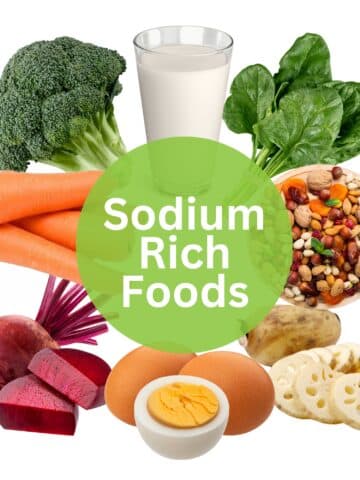
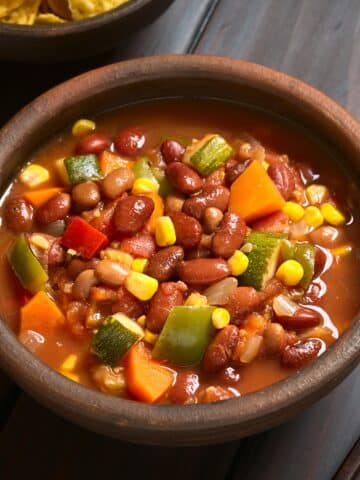
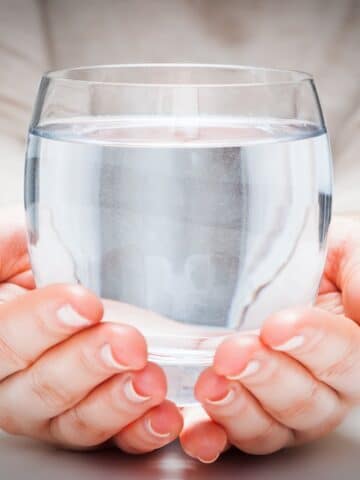
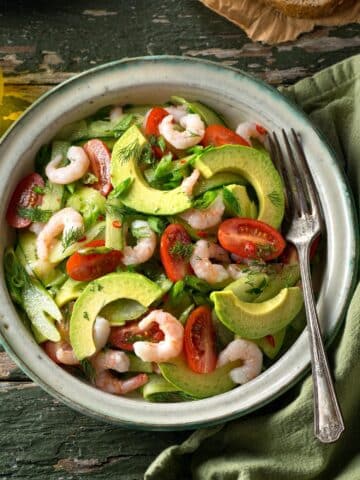

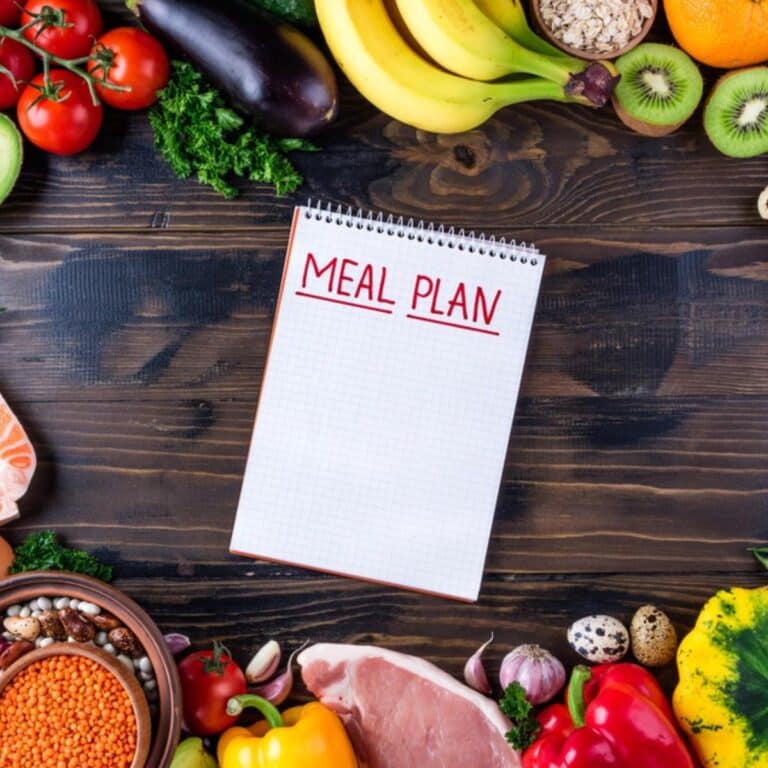
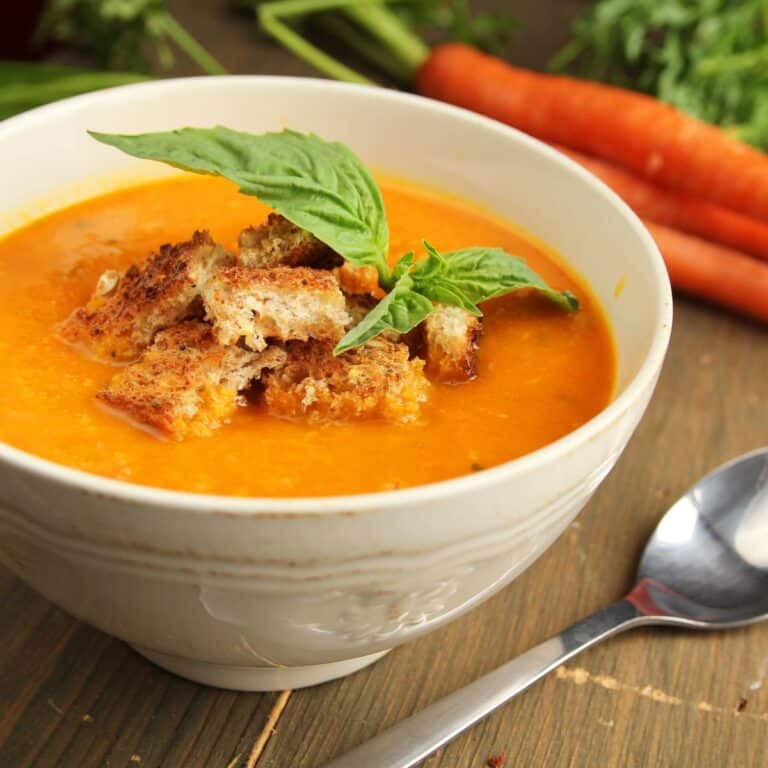
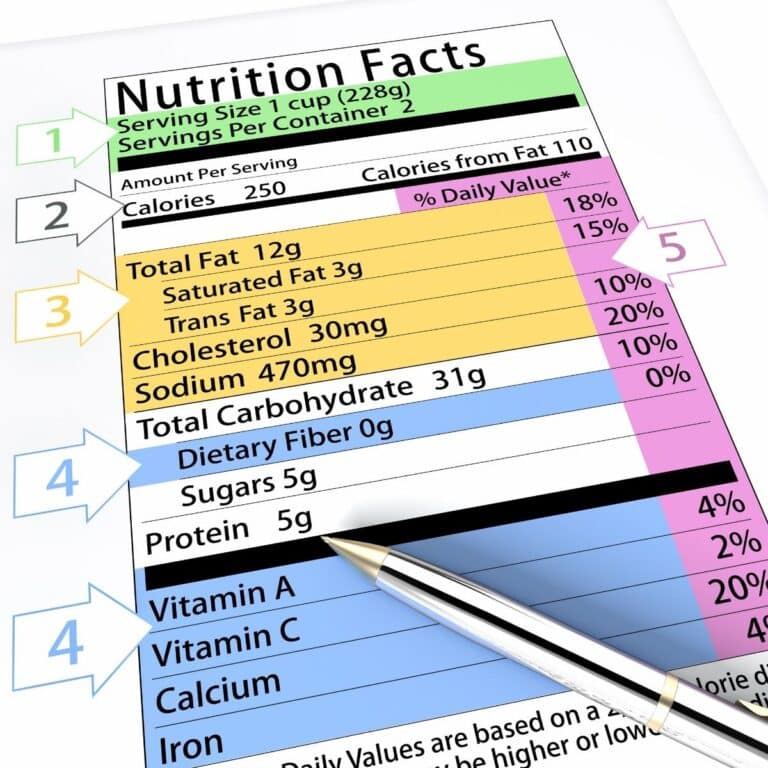
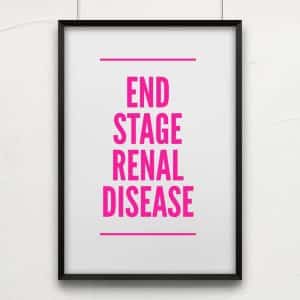
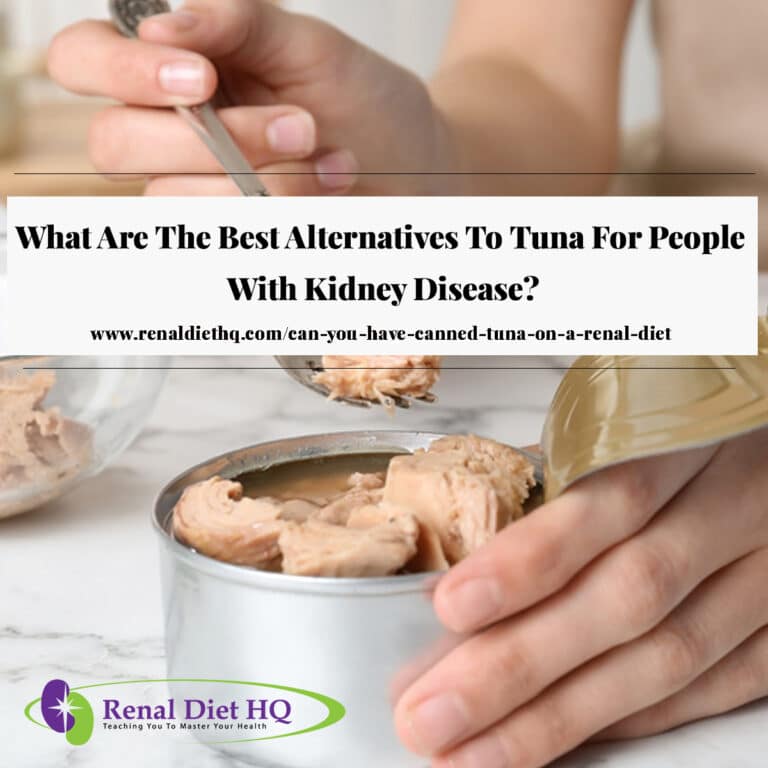


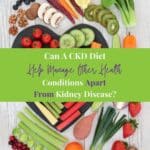

Is Imitation crab meat ok for renal diet?